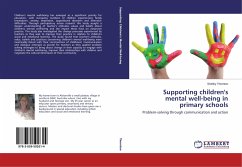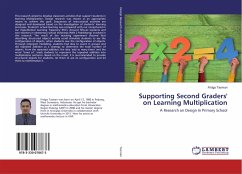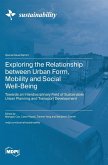Children's mental well-being has emerged as a significant priority for education, with increasing numbers of children experiencing family breakdown, anxiety, depression, oppositional disorders and attention difficulties. Through participatory action research this study sought a deeper understanding of teacher's attitudes, values and beliefs about children's mental well-being and the impact these have on classroom practice. This study also investigated the change processes experienced by teachers as they seek to improve their practice in relation to children's social and emotional learning. The study found that teacher's attitudes, value, beliefs and practices concerning children's mental well-being were inextricably linked with their constructions of childhood. Communication and dialogue emerged as pivotal for teachers as they applied problem solving strategies to bring about change in their capacity to engage with children's mental well-being, improve their relationships with children and negotiate the cultural dimensions of their community.
Bitte wählen Sie Ihr Anliegen aus.
Rechnungen
Retourenschein anfordern
Bestellstatus
Storno








